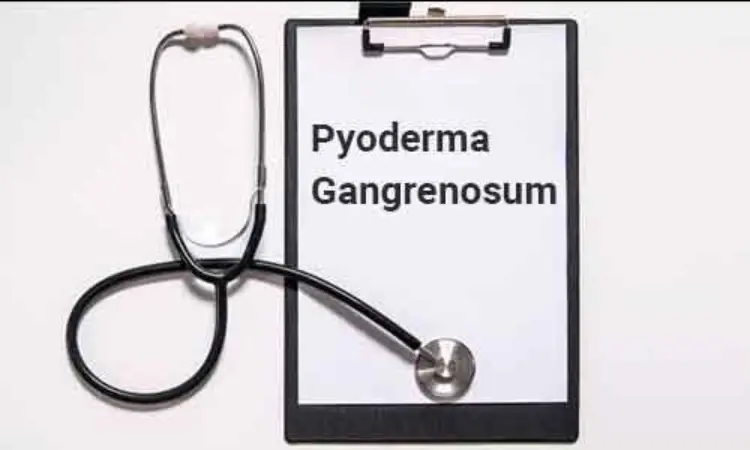- Home
- Medical news & Guidelines
- Anesthesiology
- Cardiology and CTVS
- Critical Care
- Dentistry
- Dermatology
- Diabetes and Endocrinology
- ENT
- Gastroenterology
- Medicine
- Nephrology
- Neurology
- Obstretics-Gynaecology
- Oncology
- Ophthalmology
- Orthopaedics
- Pediatrics-Neonatology
- Psychiatry
- Pulmonology
- Radiology
- Surgery
- Urology
- Laboratory Medicine
- Diet
- Nursing
- Paramedical
- Physiotherapy
- Health news
- Fact Check
- Bone Health Fact Check
- Brain Health Fact Check
- Cancer Related Fact Check
- Child Care Fact Check
- Dental and oral health fact check
- Diabetes and metabolic health fact check
- Diet and Nutrition Fact Check
- Eye and ENT Care Fact Check
- Fitness fact check
- Gut health fact check
- Heart health fact check
- Kidney health fact check
- Medical education fact check
- Men's health fact check
- Respiratory fact check
- Skin and hair care fact check
- Vaccine and Immunization fact check
- Women's health fact check
- AYUSH
- State News
- Andaman and Nicobar Islands
- Andhra Pradesh
- Arunachal Pradesh
- Assam
- Bihar
- Chandigarh
- Chattisgarh
- Dadra and Nagar Haveli
- Daman and Diu
- Delhi
- Goa
- Gujarat
- Haryana
- Himachal Pradesh
- Jammu & Kashmir
- Jharkhand
- Karnataka
- Kerala
- Ladakh
- Lakshadweep
- Madhya Pradesh
- Maharashtra
- Manipur
- Meghalaya
- Mizoram
- Nagaland
- Odisha
- Puducherry
- Punjab
- Rajasthan
- Sikkim
- Tamil Nadu
- Telangana
- Tripura
- Uttar Pradesh
- Uttrakhand
- West Bengal
- Medical Education
- Industry
JAK inhibitors feasible treatment option for patients with Pyoderma gangrenosum

Brazil: A recent study has stated that JAK inhibitors could be a potential alternative for treating pyoderma gangrenosum (PG) in certain patients, given its relatively favourable safety profile compared with other immunosuppressants.
"JAK (Janus kinase) inhibitors are a welcome addition to our options for managing patients with pyoderma gangrenosum," the authors wrote in his study published in the International Journal of Dermatology.
The author presents two pyoderma gangrenosum cases successfully treated with JAK inhibitors. A male aged 73 years experienced complete regression of PG lesions to his axilla after three weeks on baricitinib 2 mg twice daily and no relapses within 24 months of follow-up. A female aged 89 with PG on her foot and legs experienced resolution of lesions after 120 days of tofacitinib 5 mg twice daily and no relapses within eight months of follow-up.
Pyoderma gangrenosum is a rare condition that leads to the development of large, painful sores (ulcers) on the skin, most often on the legs. The exact causes of PG are unknown, but it appears to be an immune system disorder. Currently, the condition lacks standardized therapy, and there is a need for safer and more efficacious treatments.
Luiz G. M. Castro, Albert Einstein Israelite Hospital, São Paulo, Brazil, described two new PG cases treated with JAK inhibitors, adding to the small existing experience. The two patients with pyoderma gangrenosum were successfully treated with tofacitinib and baricitinib.
Patient # 1 was treated with baricitinib 2 mg bid for 39 days, while patient # 2 used tofacitinib 5 mg bid for 120 days. According to the study, both patients were cured and presented no relapse. No adverse reactions were seen.
"The increasing usage of JAK inhibitors for treating inflammatory diseases positively affected PG therapy," Dr Castro wrote. "Fifteen PG cases treated with these drugs had been found in literature, and the two new cases described here add to the limited existing experience."
"This is a novel use of baricitinib and tofacitinib beyond the approved indications," he concluded. "JAK inhibitors are a welcome addition to our options to manage patients with Pyoderma gangrenosum."
Reference:
M. Castro, L. G. JAK inhibitors: A novel, safe, and efficacious therapy for pyoderma gangrenosum. International Journal of Dermatology. https://doi.org/10.1111/ijd.16676
Dr Kamal Kant Kohli-MBBS, DTCD- a chest specialist with more than 30 years of practice and a flair for writing clinical articles, Dr Kamal Kant Kohli joined Medical Dialogues as a Chief Editor of Medical News. Besides writing articles, as an editor, he proofreads and verifies all the medical content published on Medical Dialogues including those coming from journals, studies,medical conferences,guidelines etc. Email: drkohli@medicaldialogues.in. Contact no. 011-43720751


